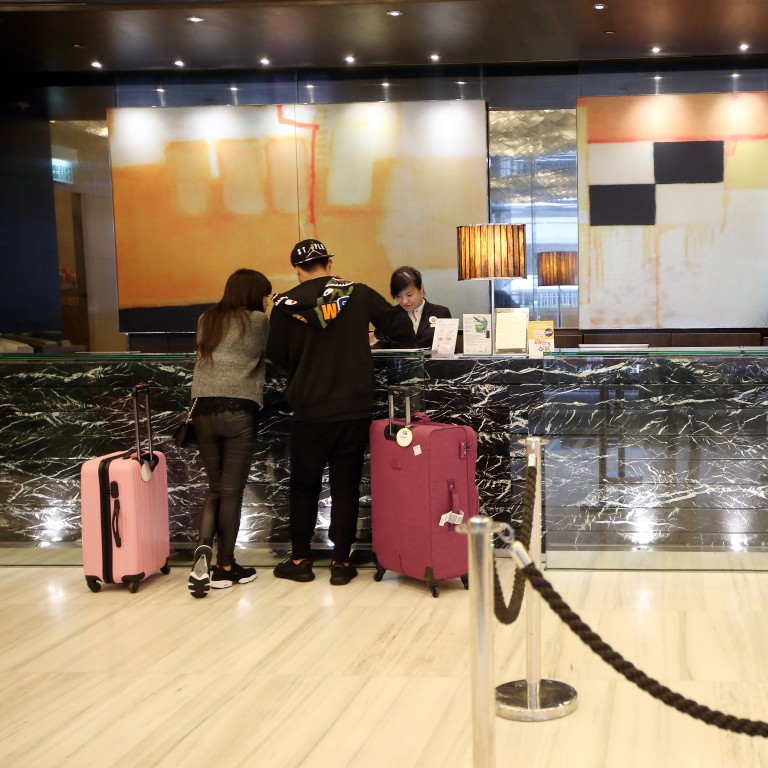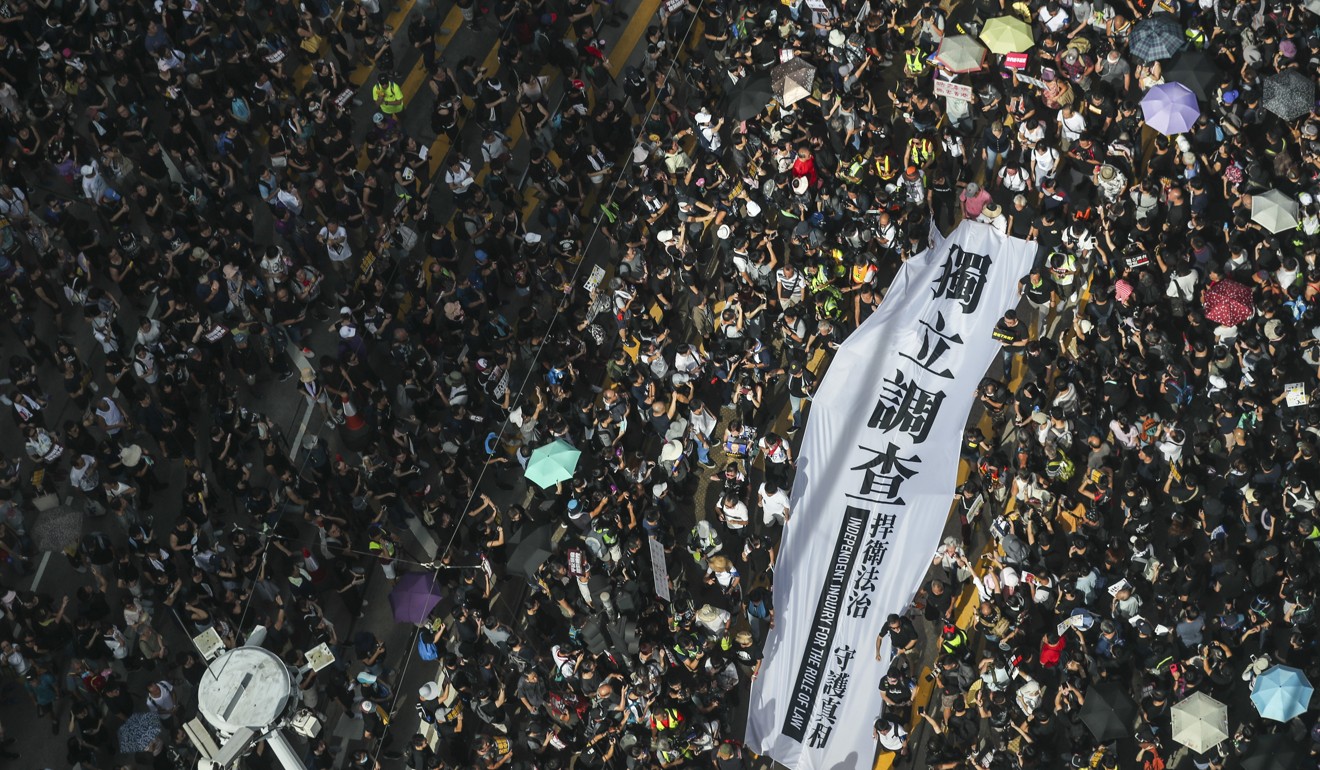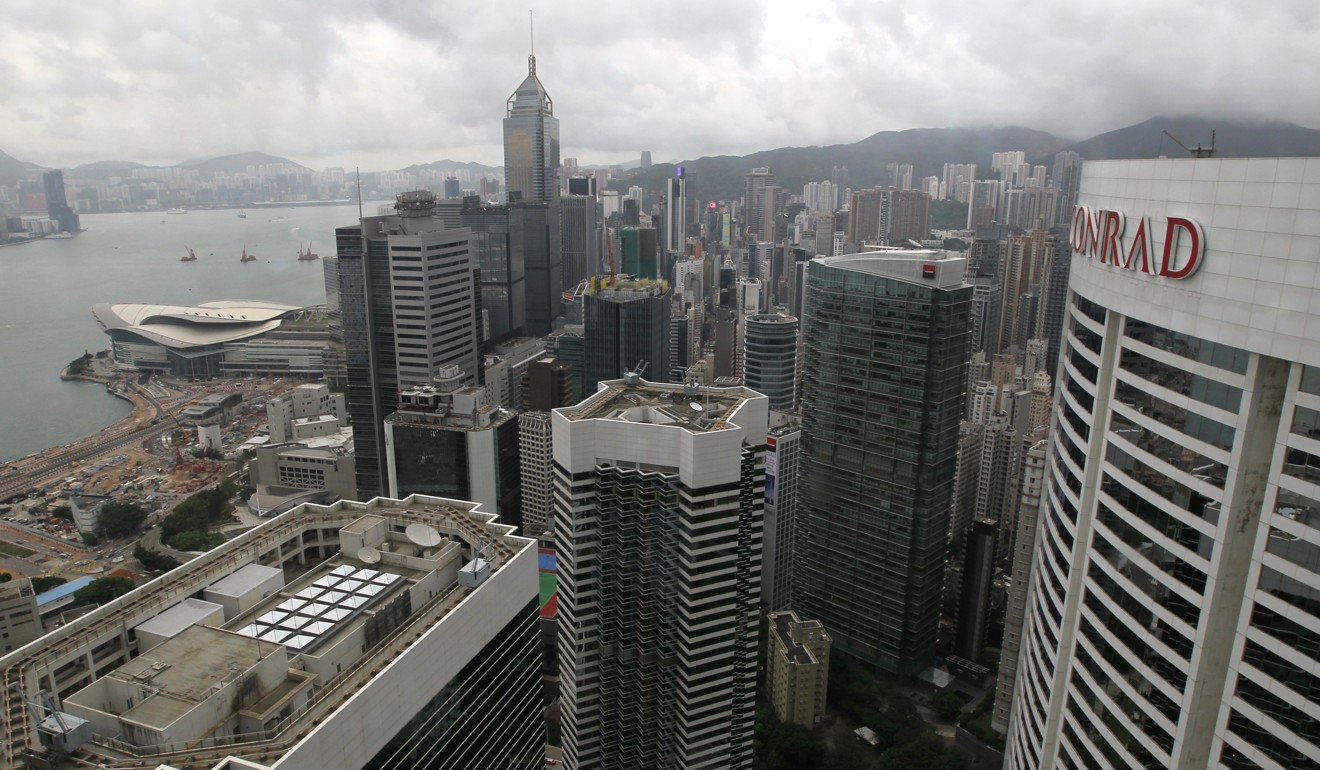
Hong Kong bracing for dip in hotel occupancy amid series of protests over extradition bill, industry leader warns
- Hotel occupancy for July may go down by 3 to 4 percentage points amid series of protests over extradition bill
- Tourist footfall also drops sharply, with Japan joining the league of countries that issued travel advisories on coming to Hong Kong
High-end hotels and business travellers in districts – such as Causeway Bay, Admiralty, Wan Chai and Central – were among the hardest-hit as roads were blocked and even shops were forced to down shutters temporarily for demonstrations that have lately been a regular affair almost every weekend.
“There were a lot of major protests in July and this will affect the desire of tourists from short-haul locations – such as Japan, South Korea and Thailand – to come to Hong Kong,” Michael Li Hon-shing, executive director of the Federation of Hotel Owners, said on Tuesday.

Hong Kong has been rocked by a wave of protests since early June against the bill, which would have allowed the transfer of fugitives to jurisdictions with which the city does not have such arrangements.
Li said visitors from mainland China would get somewhat used to Hong Kong’s situation if it did not turn too violent.
“For example, Guangdong travellers are mostly familiar with Hong Kong’s environment. There is a possibility that they would still come here.”
He expressed concerns about a trade show scheduled in a month – the watch and clock fair, and said that some overseas exhibitors might skip the event.
Retail panel flags business decline worry amid extradition bill protests
As the protests unfolded in early June, several consulates – such as those of the United States, Canada, Australia and Macau – issued travel advisories for their nationals when travelling to the city.
They urged their citizens to avoid areas where demonstrations over the extradition bill were taking place and watch out for potential violence in public gatherings.

Protests hammer Hong Kong economy: air travel, retail sales, hotels all hit
The city’s total tourist arrivals overall grew 4.2 per cent for the same period, but it meant the lowest weekly growth since the middle of June.
In the first five months of the year, Hong Kong hotels were on average 90 per cent full, or 1 percentage point higher than the same period last year, according to the board. This was despite the fact that the number of hotel rooms in the city grew 4 per cent during the period.


